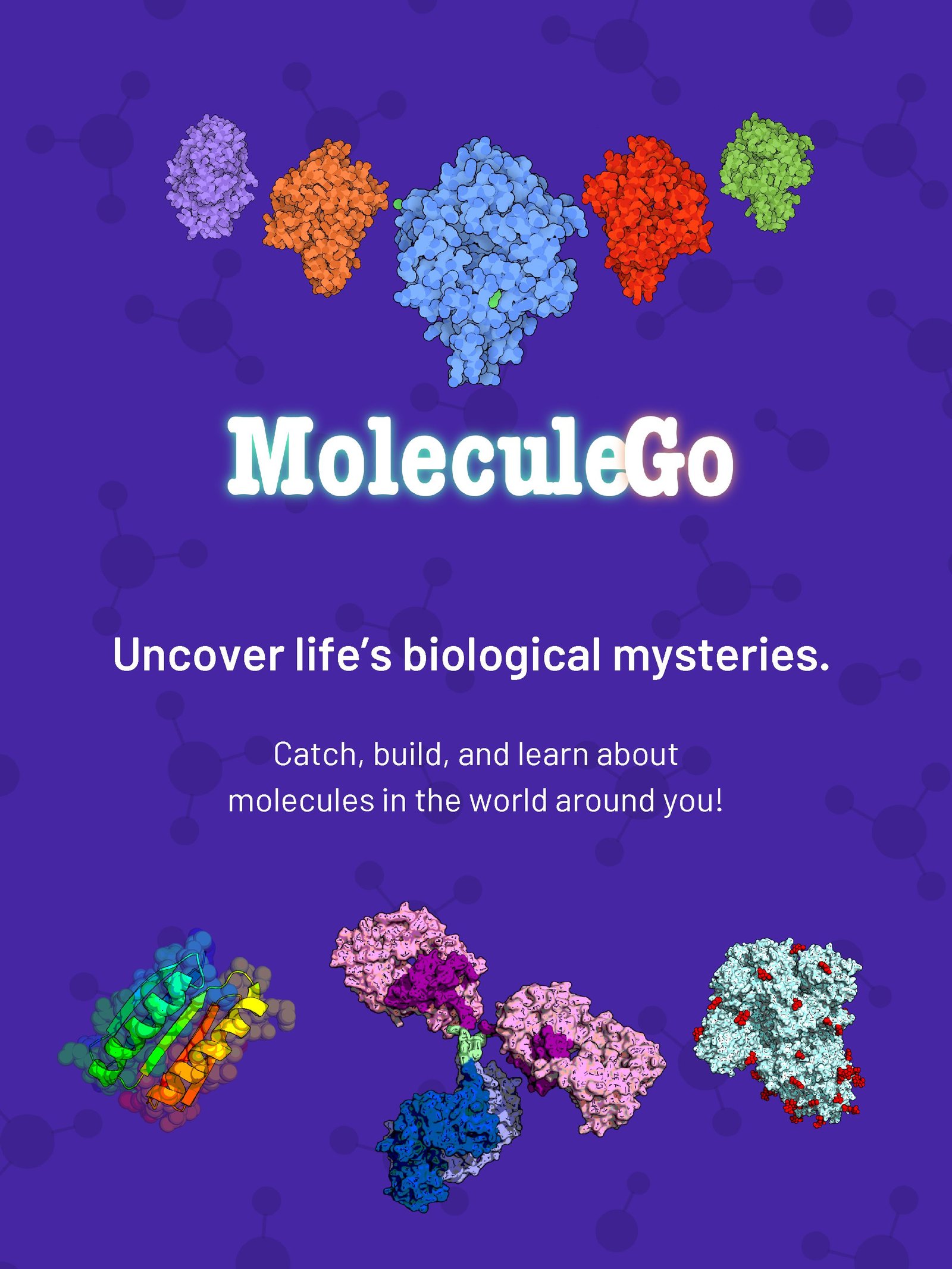Hello! I’m Vishwas, and I’m currently a rising senior at Flower Mound High School. I am currently working with the University of Texas at Dallas to launch an up-and-coming educational biology app called MoleculeGo, a geolocation-based, user-interactive game built by a group of local high school students and college undergraduates at the University of Texas at Dallas. Our app aims to inspire students and educators of all ages to learn more about the overlooked presence of biology in our everyday lives, introducing a glimpse of newfound interests in science and potential career paths to students exploring their future possibilities. Students, taking the role of a biological scientist within the game, can explore and collect a plethora of biomolecules and proteins based on their geographical location and can further assemble and learn about the purpose and function of these microscopic molecules in not only the human body but the natural life around ourselves. While the app is still in development, we are aiming for MoleculeGo to be released as a free app in the Apple App Store and Google Play Store by the end of July and are hoping to gain traction in the public eye to spread our audience and increase our user population to receive feedback and continue to improve the game indefinitely. I’m sure the game can change the lives of many users and the way we perceive biology as a whole.
Life on Earth is fascinating in its many complexities, and the biology of our planet is like no other. The interactions between all living things can be boiled down to many delicate molecules, which are still being explored today. While their interactions make for a captivating puzzle for researchers, understanding these intricate details can be challenging and intimidating.
To make this learning process more accessible, fun, and rewarding, we have created an app called MoleculeGo: an augmented reality gaming app that hopes to gamify the process of learning about molecular biology. In the game, players collect amino acids and DNA sequences, the molecular building blocks, and blueprints used to synthesize proteins. By capturing DNA segments, the player can discover genes that encode proteins. These genes provide the user with the necessary “recipe” for synthesizing proteins, which can later be used to construct even more complex molecules. As the player progresses in the game, information will become available about each molecule’s basic function and how its structure is associated with its molecular role, which allows people to learn about the significant concepts of biology while building their protein collection within the app. It’s like a backpack of molecules.
By creating an app that allows you to build molecules from the ground up, we hope to help you explore the intricate details of biology and what makes life on Earth so innately complex.
MoleculeGo Team: Dr. Faruck Morcos, Dr. Claude Sinner, Aman Yarlagadda, Ayman Kazmi, Benson Ngai, David Peña, Gauri Mittal, Jay Mokkapati, Meera Bhakta, Vishwas Subash, Nicolas Mercado, Rosine George, Shriya Bhat, Siddarth Soma, Thejal Anandakumar, and Yash Pathi
MoleculeGo Website: https://www.moleculego.com/
